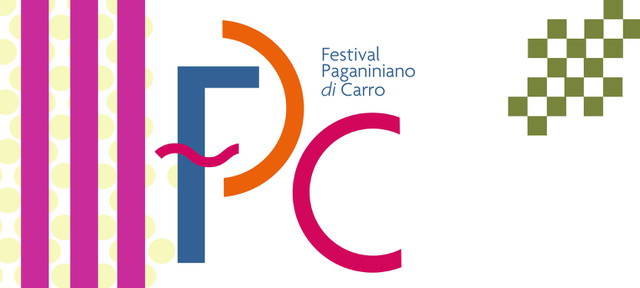IFood The Perils of Food Standardization: Unveiling the Risks – Pietro Paganini
Algorithms, labels, taxes, and propaganda are tools that groups with political and commercial interests use to impose a universal diet. This diet favors economies of scale but threatens diversity and freedom of choice, and therefore free competition. Food companies are forced to conform to the single thought of the universal diet in order to survive. Without creativity and entrepreneurship, there is no innovation.
IFood The Perils of Food Standardization: Unveiling the Risks
WHAT HAPPENS Entrepreneurs and companies increasingly practice production strategies that do not respect the social purpose of entrepreneurship and tend to hinder it, acting against the broader individual freedom of citizens who make up the market and therefore against competition.
FACTS As in all industrial sectors, even in the food and agricultural sector, production and transformation companies seek to create economies of scale.
- They pursue the development of a global value chain that does not have to adapt to the different peculiarities of local markets.
- Companies devise ways to produce universal foods and drinks that can please and satisfy the largest number of consumers on a global scale without varying and adapting recipes, the chemical formulation of ingredients, or organoleptic characteristics to individual consumer tastes and preferences.
- They plan for location economies to produce in economically and logistically strategic areas (not linked to any specific culinary region or tradition).
- They rely on international commercial and communication campaigns that do not need to be adapted to regional markets.
READ IT AGAIN: THE TROUBLES WITH THE ANTHROPOCENTRIC IDEOLOGY >>>
- It is a legitimate entrepreneurial aspiration that, through ingenuity, investment, and managerial ability, produces innovation. It is also a natural evolution of things. There are already products that, more or less on an economy of scale, manage to satisfy the needs and desires of consumers worldwide.
WATCH IT AGAIN: CUTTING TAXES IS EASY, SIMPLIFYING IT IS HARD >>>
BUT… For the food industry, there is a problem: modifying diets that belong to the geographic and historical tradition of a region to replace them with universal products and tastes is very complicated and time-consuming (which is money).
- The diet that each of us follows is one of the most intimate human habits and is composed and conditioned by countless and complex factors (DNA, metabolism, tradition, history, geography, and above all conscience, etc.) and is therefore difficult to modify, especially in the short term.
FOOD POLICY To overcome this problem that the automotive, fashion, and technology sectors, for example, have not had to face, attempts are made to manipulate consumer behavior by soliciting them on perceived issues (through emotional socio-media campaigns): health and sustainability. Hence the use of algorithms, nutritional labels, and tax levers that serve to indicate what is good and what is bad according to the universal diet, that is, what is healthy for consumers and what is sustainable for the planet.
IF YOU MISS IS: GOD’S DIET >>>
FOOD PROPAGANDA In this way, consumers are conditioned, through labels (traffic light and Nutriscore, for example) and propaganda (media messages that touch emotions rather than reason), to choose products defined as healthy and sustainable. However, it should be emphasized that health and sustainability are not objective criteria, but are established by an algorithm engineered by a (narrow and complacent) group of scientists who, in turn, often pursue a political ideology or commercial interests, that is, do not rely on doubt and critical thinking, which are the basis of the experimental method of science.
READ IT AGAIN: TOWARD PERSONALISED PRECISIOON DIETS >>>
- Such behavior is a perverse and dangerous process both for individual freedoms and therefore for choice, but above all for diversity which is the basis of Freedom. It threatens the diversity of each consumer through the imposition of a universal taste. It also threatens the diversity of diets that consumers refer to, and therefore history and tradition.
WATCH IT IT AGAIN: EUDR SMALLHOLDERS AS A PIVOTAL PLAYER >>>
IT IS NOT INNOVATION Innovation is confused with homogenization. Innovation is a process to which man’s ingenuity, creative strength, and entrepreneurship contribute in seeking new solutions to solve problems. With the universal diet, companies are instead driven to use science to “innovate”. This is according to a fixed and definitive (algorithmic) pattern that must necessarily achieve a certain result.
- The result is that the consumer is artificially encouraged to eat what is suggested to him through labels and propaganda. In other words the universal diet that a group of scientists has established, disregarding the nature (DNA, metabolism, consciousness, character, inclinations, etc.) and the history (economic and social) of each individual. Companies either follow the universal diet or lose market share.
- The diversity that manifests itself in the history and tradition of each territory (and which is the extraordinary wonder of humanity) is reduced or canceled to make room for artificial diets. Thus, the economy of the territories also dies, and in the long run, the very idea of the market.
DON’T MISS IT: NUTRITION AND NATURE POSITIVE POLICIES IN POLAND >>>
SUMMING UP The pursuit of algorithms, labels, and universal taste does not favor innovation as a creative process that competes with diversity and therefore favors change. It imposes an agricultural and industrial system in which science and innovation must produce certain and definitive results according to the dominant ideology. This is the opposite of entrepreneurship.”
IFood The Perils of Food Standardization: Unveiling the Risks – Pietro Paganini
Image credit: Paul Rogers, courtesy of the NYT >>>






